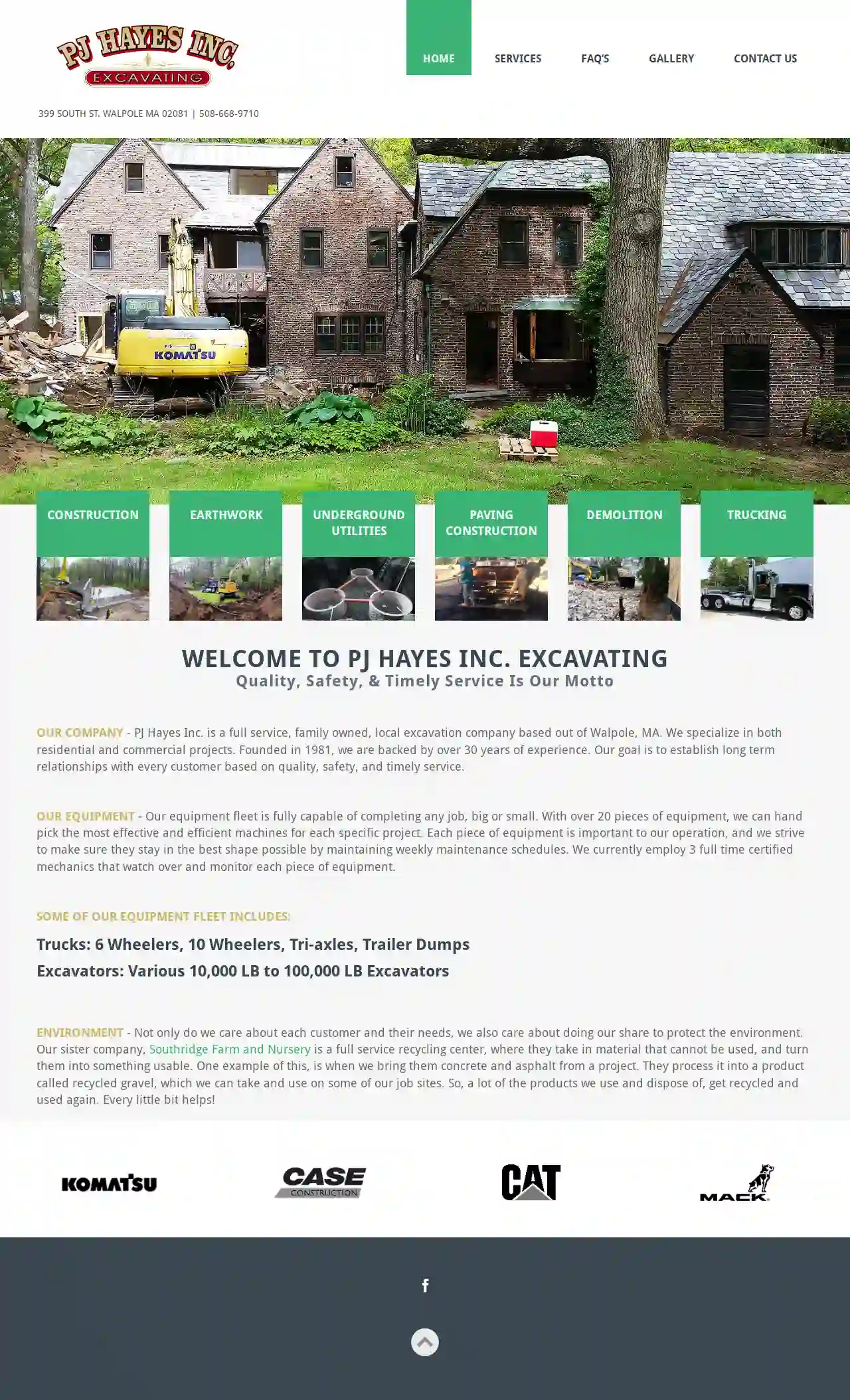Demolition Contractors Orpington
Find Demolition Contractors in Orpington
Get multiple Demo Contractors quotes for your project today! Compare profiles, reviews, accreditations, portfolio, etc... and choose the best deal.

South East Renovators
1241, North street, NY, GBWelcome to South East Renovators, where craftsmanship meets innovation. Transforming spaces, exceeding expectations. Your vision, our expertise – let's build something extraordinary together! We invest wholeheartedly in our work, where no undertaking is too large for our devoted group. Our obligation to greatness stays enduring. With an abundance of involvement and an energy for craftsmanship, we approach each undertaking with excitement, guaranteeing that every client's vision is rejuvenated, no matter what the scale. Experience meets mastery! With more than 25 years in construction, spend significant time in material and fixes, we convey unmatched assistance. From minor fixes to significant undertakings, trust us for quality craftsmanship and unequaled information. After all your space is our expertise. 25 Years of Experience Two decades mastering construction craft. Trust our 20 years of demonstrated skill for first rate administration and unmatched outcomes. Safety is our top priority We focus on a safe workplace, guaranteeing each undertaking is executed with the most elevated respect for prosperity. Your wellbeing is our responsibility. London Based Renovators We comprehend that emergencies can occur whenever. That is the reason we offer nonstop emergency get down on administrations.
- Services
- Why Us?
- Gallery
Get Quote
YHB Contracts Ltd
1Units 9-12, Charmwood Farm, Charmwood Lane, Orpington, Kent, BR6 7SA, GBWelcome to YHB Contracts Ltd YHB Contracts Ltd is a family run business whose mission is to exceed client’s expectations through honest, collaborative excellence. We offer a wide range of building services, including, Commercial Refurbishment and Maintenance, Residential Refurbishment, Loft Conversions, Extensions, Painting & Decoration, Bathrooms and Kitchens. Structural Waterproofing solutions for Basements and Cellars, Gas Protection, and Damp Proofing. Architectural Services and Design, double glazing, and Pool installation. We pride ourselves on our unrivalled reputation for reliability, quality, and satisfaction, which we have earned by working in partnership with our customers, operating with Integrity as our guiding principle. Proactive maintenance retains the value of the property and keeps dilapidations in check, and keeping on top of building maintenance helps to prevent larger issues from occurring, and will ensure health and safety regulations are complied with. Please call us, today We take pride in being transparent, approachable, and easy to deal with We are always reliable, reasonable, and trustworthy We use skilled individuals to provide a quality service and a quality finish, across a range of services
- Services
- Why Us?
- Testimonials
- Gallery
Get Quote
Murph Construction
1Bromley, GBWelcome to Murph Construction With over 40 years of experience in the industry, our construction company has built a reputation for quality service and exceptional craftsmanship. Our team of skilled professionals is dedicated to delivering projects that exceed expectations and meet the highest standards of excellence. At our core, we believe that every project deserves the same level of attention to detail and commitment to excellence. From small renovations to large-scale commercial developments, we approach each project with the same level of care and professionalism.
- Services
- Why Us?
- Testimonials
- Gallery
Get Quote
Earthbound Services
1Bromley, GBWelcome to Earthbound Services Earthbound Services specializes in sports ground construction and pitch renovation, track renovation, and landscaping projects for private and commercial clients. We have a wide range of equipment and expertise, which enables us to offer clients throughout the South East of England a one-contractor solution whatever their project entails. We’re always happy to answer questions and to provide a no-obligation quote.
- Services
- Why Us?
- Gallery
Get Quote
P J Hayes Inc
4.26 reviews399 South St., Walpole, 02081, GBWelcome to PJ Hayes Inc. Excavating Quality, Safety, & Timely Service Is Our Motto Our Company PJ Hayes Inc. is a full service, family owned, local excavation company based out of Walpole, MA. We specialize in both residential and commercial projects. Founded in 1981, we are backed by over 30 years of experience. Our goal is to establish long term relationships with every customer based on quality, safety, and timely service. Our Equipment Our equipment fleet is fully capable of completing any job, big or small. With over 20 pieces of equipment, we can hand pick the most effective and efficient machines for each specific project. Each piece of equipment is important to our operation, and we strive to make sure they stay in the best shape possible by maintaining weekly maintenance schedules. We currently employ 3 full time certified mechanics that watch over and monitor each piece of equipment. Some of our equipment fleet includes: Trucks: 6 Wheelers, 10 Wheelers, Tri-axles, Trailer Dumps Excavators: Various 10,000 LB to 100,000 LB Excavators Environment Not only do we care about each customer and their needs, we also care about doing our share to protect the environment. Our sister company, Southridge Farm and Nursery is a full service recycling center, where they take in material that cannot be used, and turn them into something usable. One example of this, is when we bring them concrete and asphalt from a project. They process it into a product called recycled gravel, which we can take and use on some of our job sites. So, a lot of the products we use and dispose of, get recycled and used again. Every little bit helps!
- Services
- Why Us?
- Gallery
Get Quote
Ammcass Construction Engineering Group Limited
51 reviews214-216 Widmore Road, Bromley, Kent, BR1 2RH, GBAmmcass Construction Engineering Group Ammcass Construction Engineering Group was founded on the values of excellence, passion, reliability, and collaboration. We believe our unique experience in both the Construction and Engineering industry means we can present our clients with the highest quality of service. Founding Director, Hugh Gray, brings years of construction experience to the business and has been joined by other Directors and key personnel to ensure our standards are upheld across all disciplines. We are committed to our clients; offering continuous innovation and best practices, with high quality and qualified staff who can deliver services for our customers. Our mission is to lead the construction industry by providing the highest level of professional expertise. We strive to maintain long-standing relationships with our clients and supply chain, whilst contributing to the communities in which we operate.
- Services
- Why Us?
- Gallery
Get Quote
Pro Renovations Bromley Lofts
542 reviewsBromley, GBPro Renovations Bromley Lofts Pro Renovation Bromley are a family-run business, with over 20 years’ combined experience spent operating within the loft conversion and home building sector. Our specialist team are able to provide you with loft conversions of superb quality, along with luxury home extensions including integral kitchens, fitted wardrobes and bathrooms if required. Our loft conversion and home extension team are fully equipped and skilled to deal with every aspect of your contract including planning, design, carpentry, electrical work, plastering, plumbing/tiling and even painting and decorating. All our work is guaranteed, providing you with total peace of mind knowing that you will receive a high quality service from beginning to end of your loft conversion or home project in Bromley. Pro Renovations Bromley Lofts covers the whole of the Bromley and South-East London area.
- Services
- Why Us?
- Our Team
- Testimonials
- Gallery
Get Quote
Waste Disposal Bromley
1Bromley, GBWaste Disposal Bromley BR1 There’s no reason why you can’t have a clean and clear rubbish free home in Bromley on a budget. Our waste disposal Bromley team won’t charge you extortionate prices and will strive to provide you with a first class service all the same. Our five star home clearance service won’t cost you the earth, so you can start to buy new furniture to fill up all your newfound space. If you’ve got some rubbish that you need cleared from your property in BR1 or BR2, our reliable and trustworthy team will provide you with a perfect solution. Office Clearance Bromley BR1 Bodged jobs won’t bode well for the professional look of your office space. So don’t cut corners and shove your office waste in the corner, hoping that it won’t be noticed. Instead, call our professional team of Bromley waste disposal specialists, as we’ll be able to clear out your rubbish quickly and efficiently. No matter what and no matter when, our business waste removal team can be called out to any office or commercial premises in the BR1 and BR2 area, so if you’re at a loss of what to do, contact us today. Rubbish Collection Bromley BR1 At our waste disposal company in Bromley, we’re able to see to any job. Our prices are extremely competitive and we can offer you the lowest price for waste disposal in the local area. A smart, cost-effective solution, we’ll astound you with the quality of our services and the speed at which we work in BR2. We will be in and out before you know it and are confident that you will be left completely, one hundred percent satisfied with what takes place. So give us a call and hire our services today. Waste Disposal Bromley BR1 A quality waste disposal service is key if you want to eradicate rubbish and make better use of the space in your property in BR1. So declutter, get rid of old items and anything that you no longer need and call our based waste clearance experts to get the job sorted. Our team can be called out to any domestic or commercial property in the BR2 area and can take care of different types of waste or rubbish, including garden waste, furniture and general household waste, so you won’t have to worry about clearing up anymore. Garden Waste Removal Bromley BR1 Is an overgrown garden, out of control bushes or a cracked patio causing you real problems? Fancy scrapping the whole lot and redesigning your outdoor space in BR2 from scratch? If the answer’s yes, the first step is getting rid of the unsightly mess in your back yard and our garden clearance team in Bromley can make it happen. With a tonne of experience clearing away mess from gardens, our team will be able to tackle any waste disposal BR1 job, no matter how out of control your garden may seem to be. Builders Waste Disposal Bromley BR1 Rubble, unused building materials and just general bits of debris left over from building work can be a real problem. They can affect the state of your entire house, so get the situation sorted sooner rather than later. Our building junk removal technicians are true experts at what they do and will clean up any amount of junk or debris from properties. Waste disposal in Bromley, BR1 can be a tricky process, but our team will turn up equipped with the right vehicle and will clear away everything quickly and efficiently. Furniture Disposal Bromley BR1 With our top-of-the-range loading equipment, no amount of bulky furniture will pose a problem for our furniture removal experts. Heavy items can actually be dangerous to your health if you try to shift them on your own, especially if you have to carry them a long way, so rely on our team in Bromley to get the job sorted. Our waste disposal services in BR1 area really are the best, so sit back, relax and let us take charge of the process and do all the heavy lifting so that you don’t have to. Loft Clearance Bromley BR1 A spacious loft can be used for a lot of things, so don’t just use it as a junk storage space. Have a clear out and entrust our loft clearing team with getting rid of junk and unused items from your property in BR2. We can get rid of all types of waste and will collect, load and remove any amount of rubbish you have cluttering up your loft. Keep your property in looking neat, tidy and in top condition by making use of our waste disposal Bromley services. Call us today for more info.
- Services
- Why Us?
- Gallery
Get Quote
Pick a block paving
53 reviewsBromley, GBPick A Lock is a professional locksmith service based in the UK. We offer a wide range of locksmith services to both residential and commercial customers. Our team of experienced locksmiths are highly skilled and qualified to handle any locksmith emergency. We are committed to providing our customers with the highest quality of service at competitive prices. We understand that locksmith emergencies can be stressful and inconvenient. That's why we offer a 24/7 emergency locksmith service. We are available to help you at any time of day or night. We are also fully insured and accredited, so you can rest assured that you are in safe hands. If you are looking for a reliable and trustworthy locksmith service, look no further than Pick A Lock. We are committed to providing our customers with the best possible service. Contact us today for a free quote.
- Services
- Why Us?
- Gallery
Get Quote
Nuway Construction
171-75 Shelton Street, London, WC2H 9JQ, GBNuway Construction is a family-run construction company, specialising in high-spec and bespoke property renovations. We established Nuway Construction with the aim of providing exceptional high quality, reliability and great value to clients across London and the Home Counties. Our track record on architect-designed projects extends from prime and super-prime residential fit-outs, to large, complex commercial property refurbishment programmes. Whether you are looking to extend, upgrade or entirely renovate, you can rest assured that your property is in safe, secure and highly motivated hands with Nuway Construction.
- Services
- Why Us?
- Accreditations
- Our Team
- Testimonials
- Gallery
Get Quote
Over 11,537+ Excavation Businesses in our network
Our excavation contractors operate in Orpington and surrounding areas!
ExcavationHQ has curated and vetted Top Excavation Contractors in and around Orpington. Find a reliable business today.
Frequently Asked Questions About Demolition Contractors
- Experience: Look for companies with a proven track record and years of experience in the demolition industry.
- Licensing and Insurance: Ensure the contractor is properly licensed to operate in your area and carries adequate insurance to protect you from liability.
- Safety Record: Inquire about their safety protocols and accident history. A reputable contractor prioritizes safety.
- References and Reviews: Ask for references from past clients and check online reviews to gauge their reputation and customer satisfaction.
- Professionalism: Choose a company that communicates clearly, provides detailed estimates, and has a courteous and responsive team.
- Permits and Regulations: Obtain all necessary demolition permits and comply with local building codes and environmental regulations.
- Contracts: Have a clear and comprehensive contract with the demolition contractor outlining the scope of work, payment terms, and liabilities.
- Environmental Laws: Comply with environmental laws regarding hazardous material removal, waste disposal, and pollution control.
- Neighboring Property Rights: Respect neighboring property rights and take measures to prevent damage or disruption to adjacent properties.
- Worker Safety: Adhere to worker safety regulations and provide a safe working environment for demolition crews.
- Size and Type of Structure: The method should be suitable for the structure's size, height, and construction materials.
- Site Location and Accessibility: The method should be feasible given the site's location, surrounding buildings, and access constraints.
- Environmental Considerations: Prioritize methods that minimize environmental impact, such as deconstruction or selective demolition if feasible.
- Budget: Different demolition methods have varying costs, so choose one that fits your budget.
- Safety: Prioritize methods that ensure worker safety and minimize risks to surrounding areas.
How long does a demolition project take?
How do I find a reputable demolition contractor?
What are the legal considerations for demolition projects?
How do I choose the right demolition method for my project?
How long does a demolition project take?
How do I find a reputable demolition contractor?
- Experience: Look for companies with a proven track record and years of experience in the demolition industry.
- Licensing and Insurance: Ensure the contractor is properly licensed to operate in your area and carries adequate insurance to protect you from liability.
- Safety Record: Inquire about their safety protocols and accident history. A reputable contractor prioritizes safety.
- References and Reviews: Ask for references from past clients and check online reviews to gauge their reputation and customer satisfaction.
- Professionalism: Choose a company that communicates clearly, provides detailed estimates, and has a courteous and responsive team.
What are the legal considerations for demolition projects?
- Permits and Regulations: Obtain all necessary demolition permits and comply with local building codes and environmental regulations.
- Contracts: Have a clear and comprehensive contract with the demolition contractor outlining the scope of work, payment terms, and liabilities.
- Environmental Laws: Comply with environmental laws regarding hazardous material removal, waste disposal, and pollution control.
- Neighboring Property Rights: Respect neighboring property rights and take measures to prevent damage or disruption to adjacent properties.
- Worker Safety: Adhere to worker safety regulations and provide a safe working environment for demolition crews.
How do I choose the right demolition method for my project?
- Size and Type of Structure: The method should be suitable for the structure's size, height, and construction materials.
- Site Location and Accessibility: The method should be feasible given the site's location, surrounding buildings, and access constraints.
- Environmental Considerations: Prioritize methods that minimize environmental impact, such as deconstruction or selective demolition if feasible.
- Budget: Different demolition methods have varying costs, so choose one that fits your budget.
- Safety: Prioritize methods that ensure worker safety and minimize risks to surrounding areas.